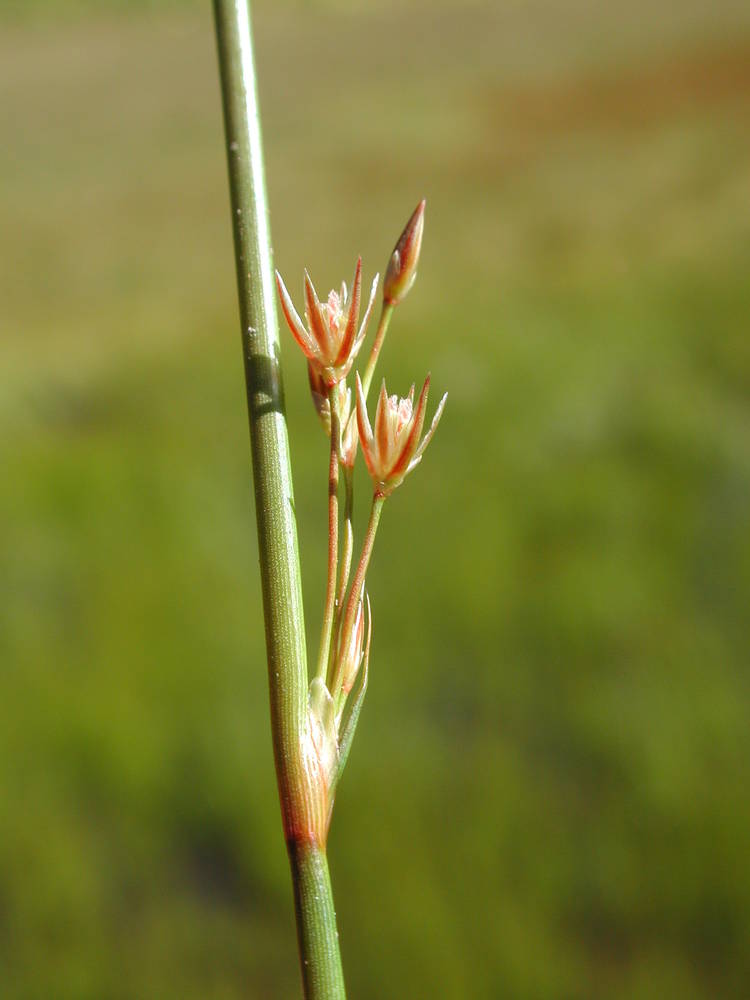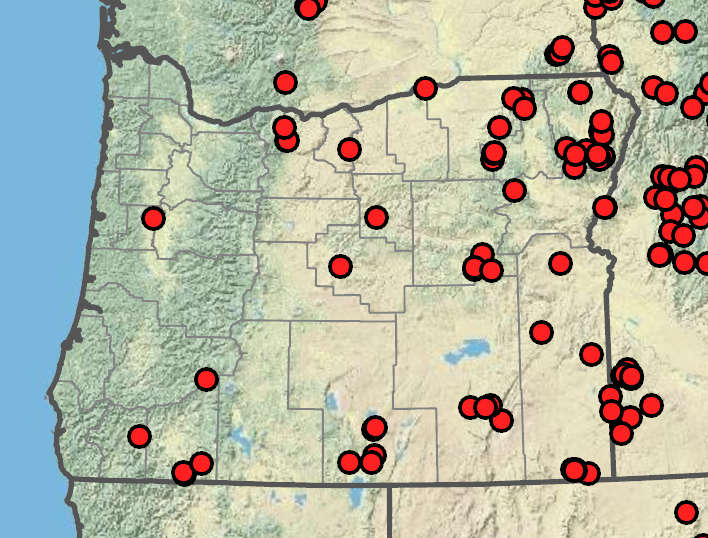Juncus confusus
Juncus filiformis
Colorado rush
thread rush
thin and wiry;
blade flat and slightly inrolled;
auricles soft and thin distally, 0.3–0.8 mm; dull, rounded or acute; dirty white to translucent.
lacking blades;
distal sheaths 3–10 cm, light brown.
cymes, 0.5–2.5 cm, usually dense and small.
a more or less loose cluster of 4–15 flowers, usually attached near or below middle of stems (stems here including erect inflorescence bracts above inflorescences);
inflorescence bracts not swollen at base.
tepals 6, with broad medium brown stripes flanking a green midvein;
tepal tips acuminate; erect; equal or subequal;
stamens 6;
filaments 0.7–1.1 mm;
anthers 0.5–0.7 mm;
styles 0.05–0.2 mm.
tepals 6, green or pale brown, 2.5–4 mm;
stamens 6;
filaments 0.4–0.9 mm;
anthers 0.3–0.6 mm;
styles 0.1– 0.15 mm.
2.5–3.5 mm; shorter than or equaling tepals, brown to dark brown;
apex notched, crested, 3-chambered.
2.5–3.5 mm; shorter than or equaling the length of the tepals, green to light brown;
apex obtuse to acute, 3-chambered.
0.4–0.5 × 0.2–0.3 mm, apiculate, longitudinally ridged.
0.4–0.5 × 0.2–0.25 mm.
=80.
=70, 80, 84.
Juncus confusus
Juncus filiformis
Seasonally moist or wet meadows, springs, swales, shores, ditches. 800–2700 m. BR, BW, ECas, Owy, Sisk. CA, NV, ID, WA; north to British Columbia, east to SD, southeast to NM. Native.
This species is often confused with Juncus occidentalis, which shares the brown-striped tepals and crested capsules but does not grow east of the Cascades. Where they overlap in southwestern Oregon and California, they are separable by the internal structure of the capsules: three-chambered in J. confusus and one-chambered in J. occidentalis.
Pond shores, wet meadows, marshes. 800–2300 m. BW, Casc. ID, WA; northern North America; Eurasia. Native.
Peter Zika
Peter Zika
- Local floras:
BC,
CA,
OR,
WA
- Local Web sites:
CalFlora,
CalPhotos,
Flora NW,
PNW Herbaria
WildflowerSearch
iNaturalist (observations)
USDA Plants Database
- LBJ Wildflower Center
- SEINet
- Plants of the World Online
- Encyclopedia of Life
- Wikipedia
- Google Image Search
- Local floras:
BC,
OR,
WA
- Local Web sites:
Flora NW,
PNW Herbaria
WildflowerSearch
iNaturalist (observations)
USDA Plants Database
- LBJ Wildflower Center
- SEINet
- Plants of the World Online
- Encyclopedia of Life
- Wikipedia
- Google Image Search


